島漁食光
Island Fishing Delights
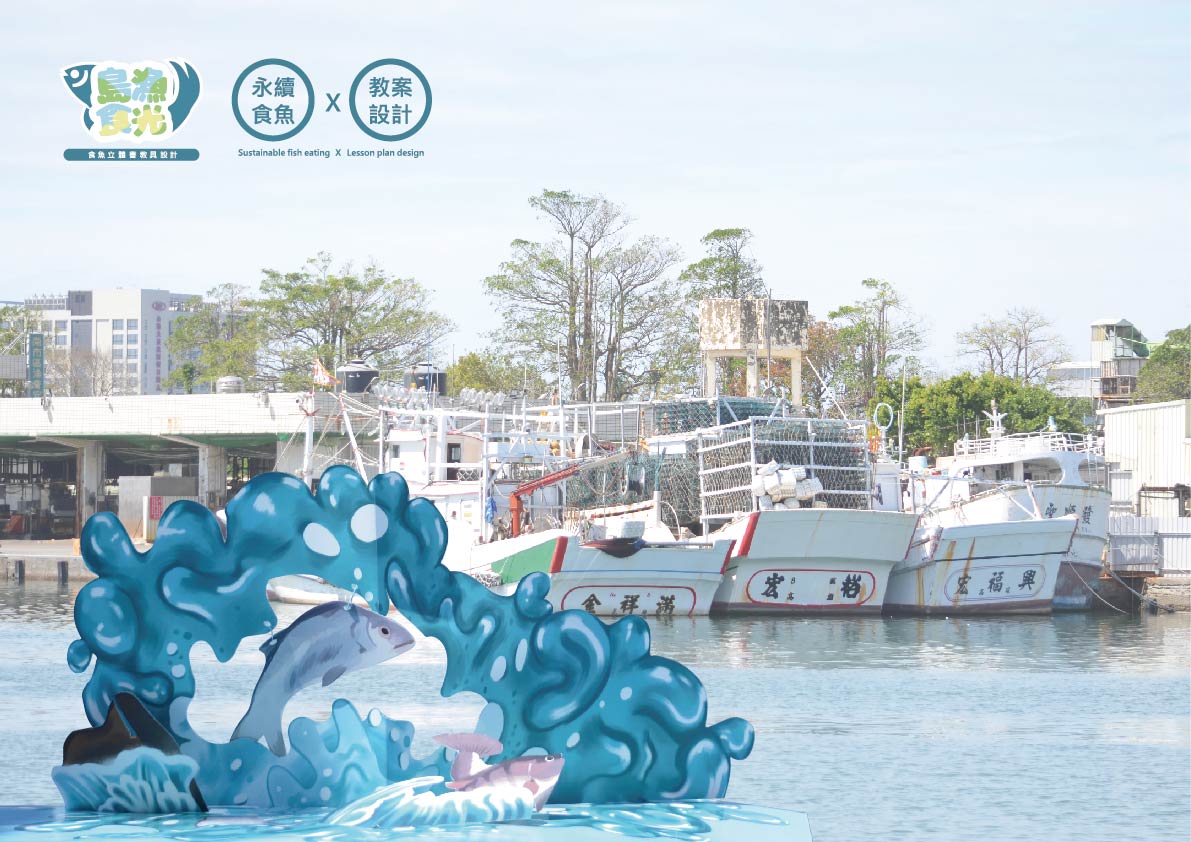
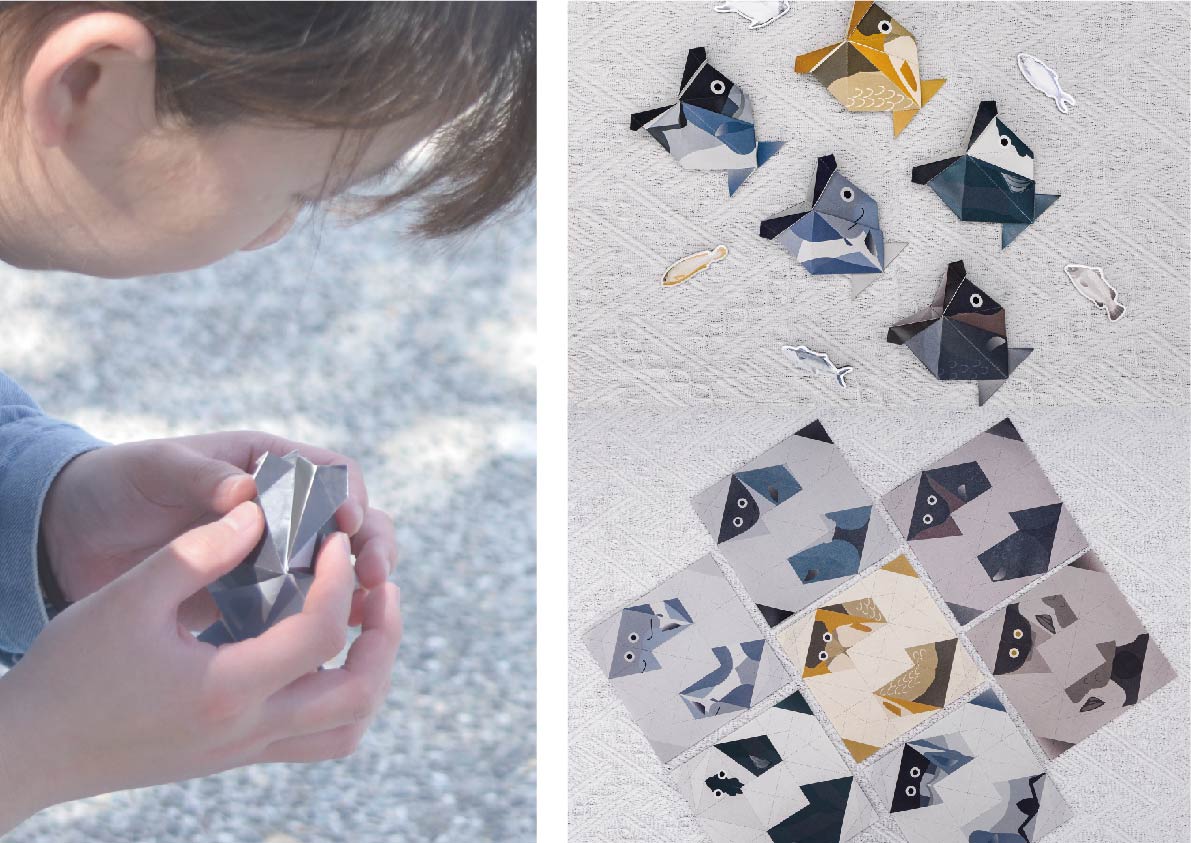
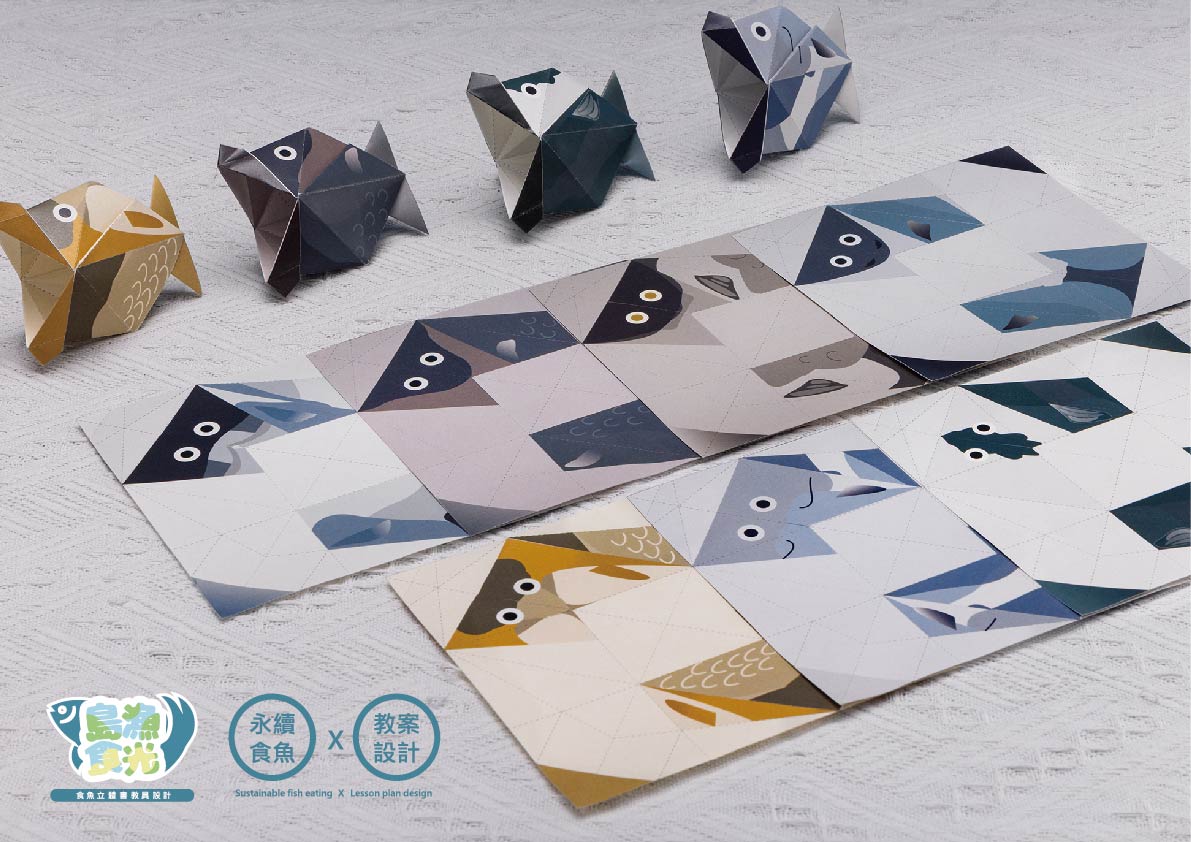
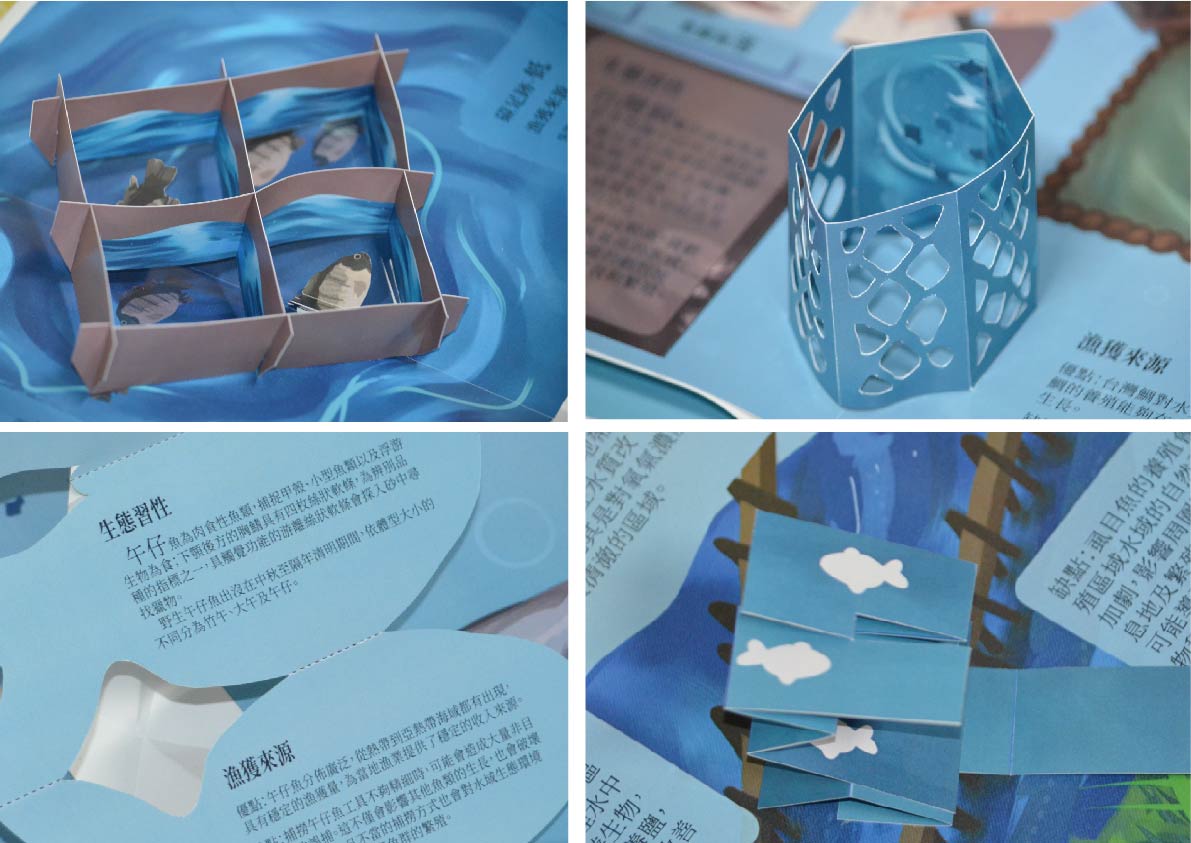
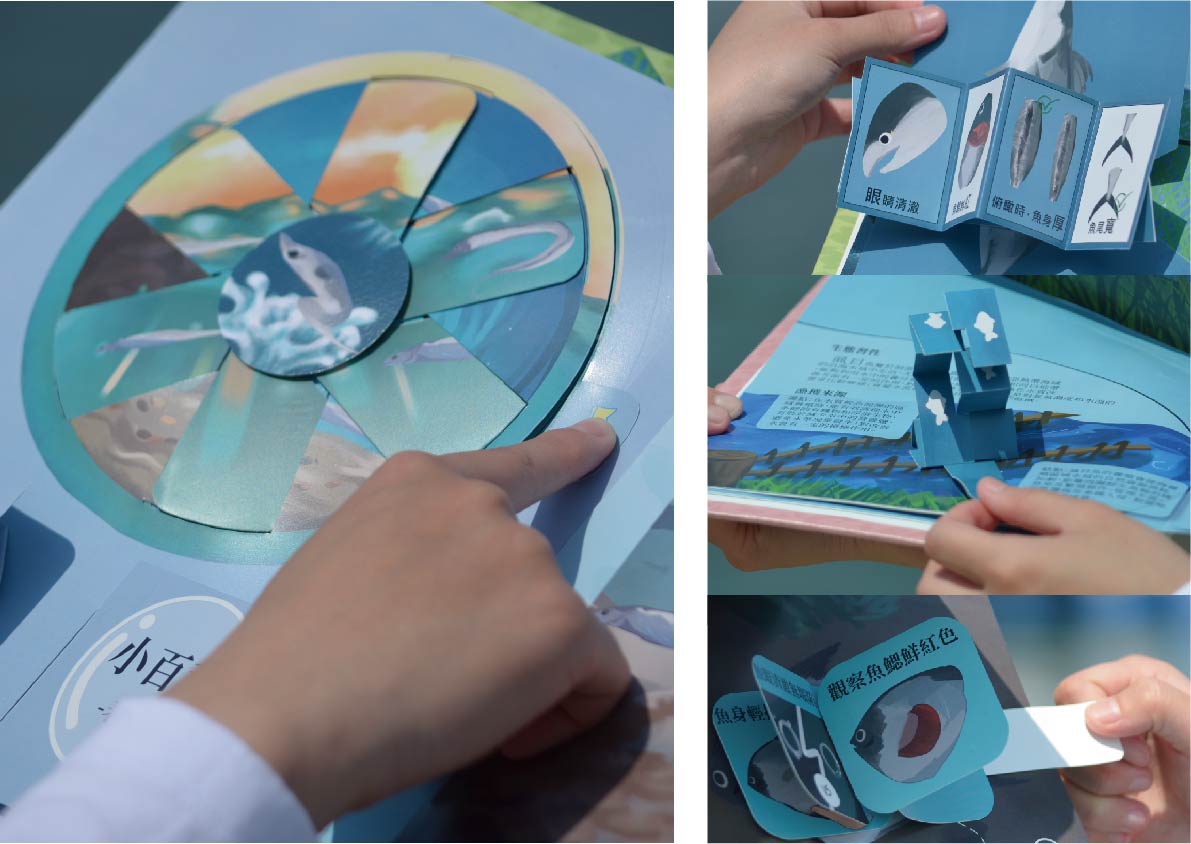
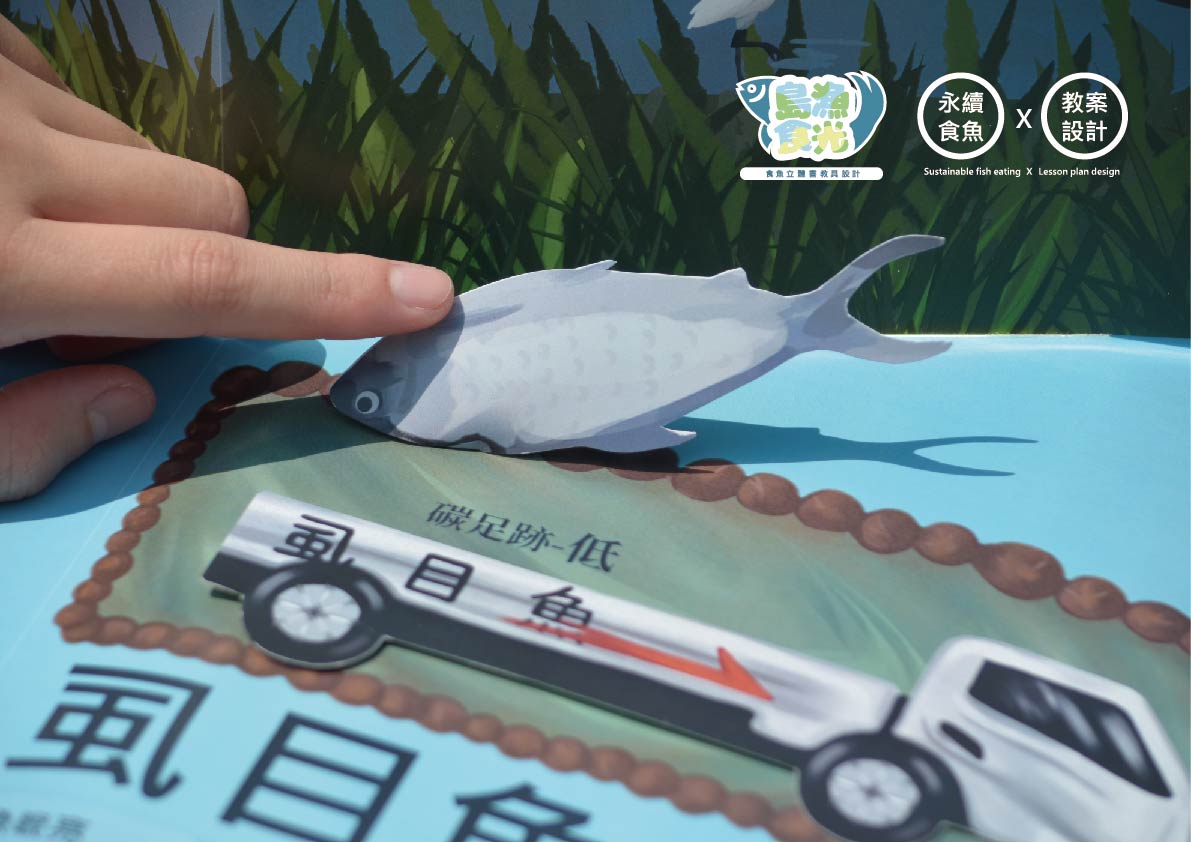
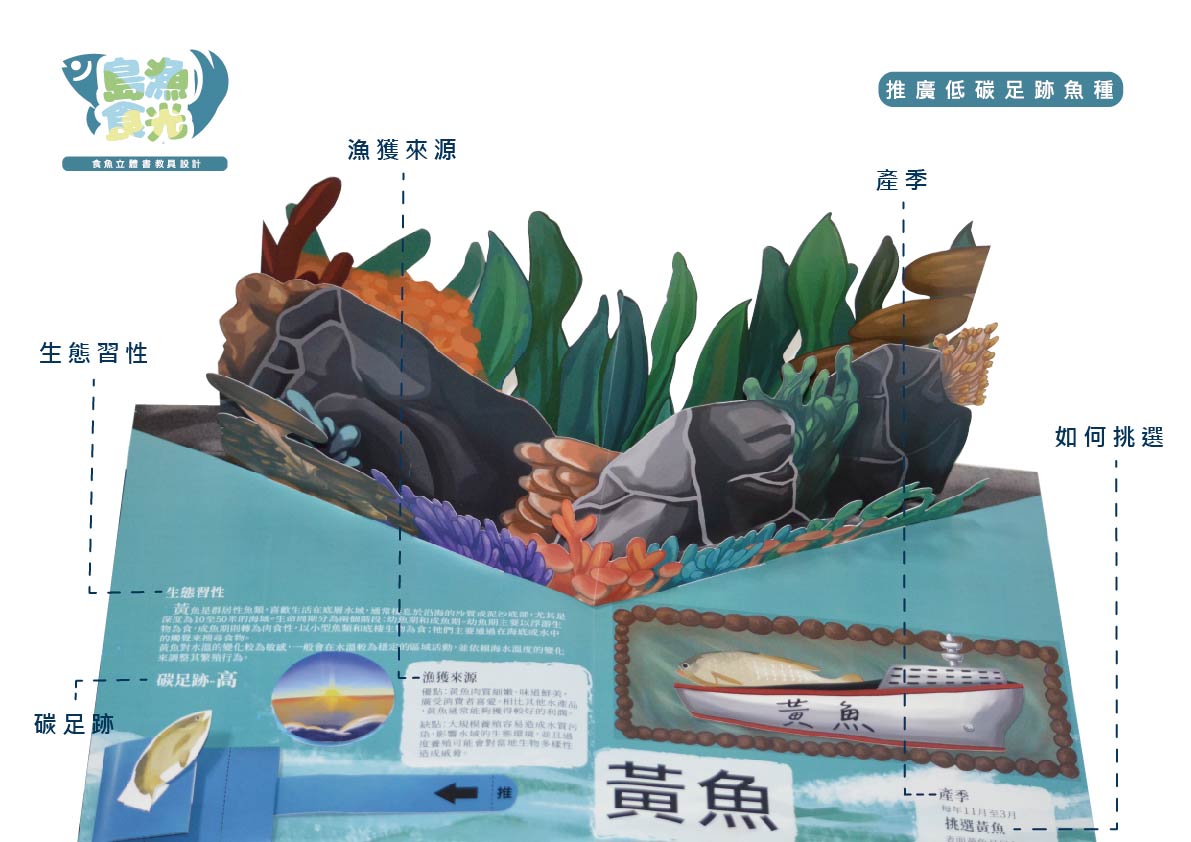
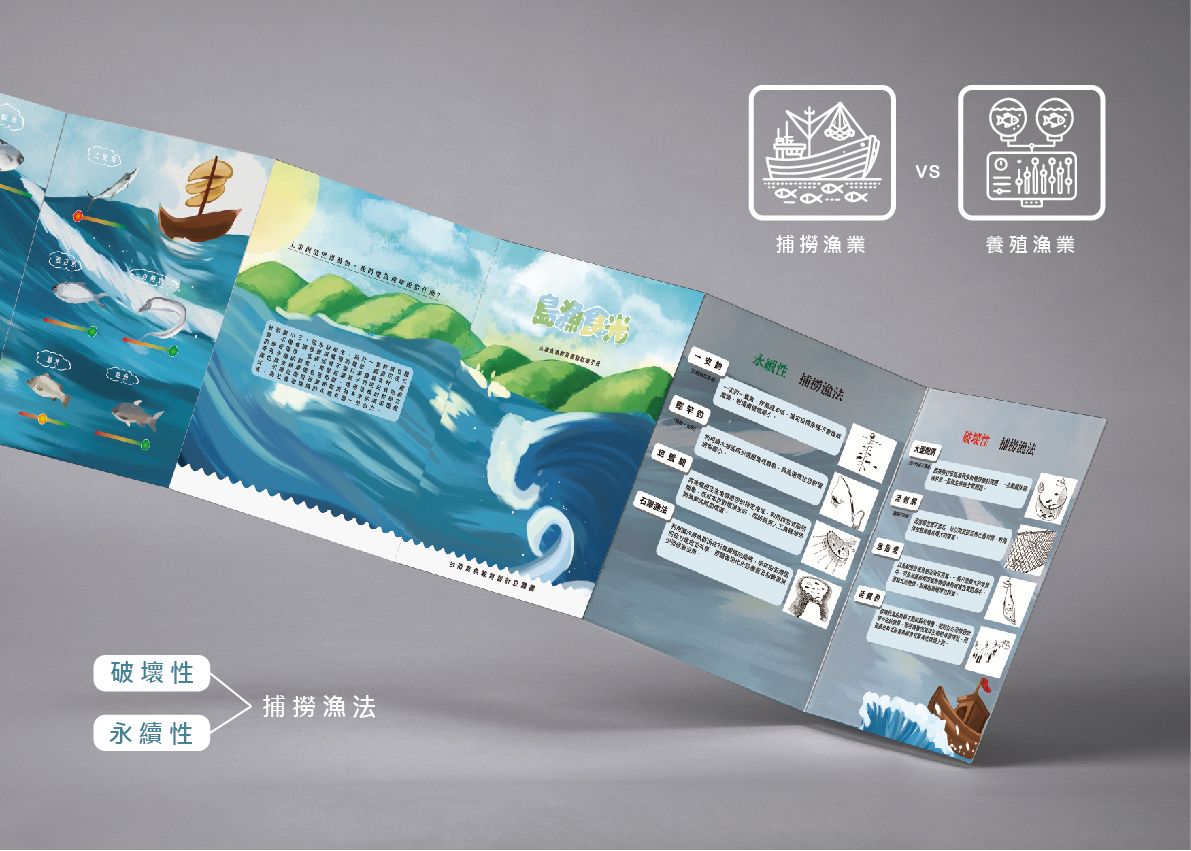
台灣是個四面環海的海島型國家,海洋資源豐富,尤其以多樣化的魚類資源為主。然而,隨著全球海洋污染的問題日趨嚴重,人們對於魚肉的食用安全感到擔憂,特別是食用魚類重金屬累積的問題廣為人知,但對魚類的其他影響認知卻相對有限。針對此情況,我們希望通過永續的食魚教育,讓孩童從小建立起對永續漁業、低碳足跡與高碳足跡魚類的基礎認識,以幫助他們在未來能夠更加理性、環保地選擇食材,並以實際行動支持海洋永續發展。因此,我們設計了一套立體書教具,透過趣味的互動方式讓孩童學習。這套立體書融入了觸覺、視覺的沉浸式體驗學習方式,例如加入動態結構讓孩子模擬漁業捕撈的過程,通過觸摸不同材質認識魚類特徵,說明魚類的生活環境與環境議題。此外,我們特別強調簡單而直觀的環保知識,幫助孩童了解低碳足跡魚類如何對環境友善、高碳足跡魚類的選擇應如何謹慎,並融入購買實踐,提升其對永續觀念的理解。希望通過這樣的教具,能夠讓孩童在輕鬆的學習過程中,建立起與環境息息相關的知識,為未來的永續發展貢獻一份力量。
Island Fishing Delights
Taiwan is an island nation surrounded by the sea, rich in marine resources, especially a diverse variety of fish species. However, with the increasing severity of global marine pollution, people are becoming more concerned about the safety of consuming fish, particularly regarding the accumulation of heavy metals. While this issue is widely recognized, awareness of other impacts on fish remains relatively limited. To address this, we aim to promote sustainable seafood education, helping children develop a fundamental understanding of sustainable fisheries, low-carbon and high-carbon footprint fish from an early age. This will enable them to make more rational and environmentally friendly food choices in the future, taking practical actions to support marine sustainability. To achieve this, we have designed a pop-up book as an educational tool that engages children through interactive and immersive learning experiences, incorporating both tactile and visual elements. The book features dynamic structures that allow children to simulate fishing processes, explore different textures to recognize fish characteristics, and understand fish habitats and environmental issues. Additionally, we emphasize simple and intuitive environmental knowledge to help children learn how low-carbon footprint fish are eco-friendly and how to make responsible choices regarding high-carbon footprint fish. By integrating practical purchasing concepts, we aim to enhance children's understanding of sustainability. Through this educational tool, we hope to provide a fun and engaging learning experience that fosters an awareness of environmental issues, encouraging children to contribute to a sustainable future.
台南應用科技大學 視覺傳達設計系
(四年級)
謝怡萱
台南應用科技大學 視覺傳達設計系
(四年級)
張玉萱
台南應用科技大學 視覺傳達設計系
(四年級)
龔筠玲
台南應用科技大學 視覺傳達設計系
(四年級)
黃敏
台南應用科技大學 視覺傳達設計系
(四年級) 指導老師 許維玿